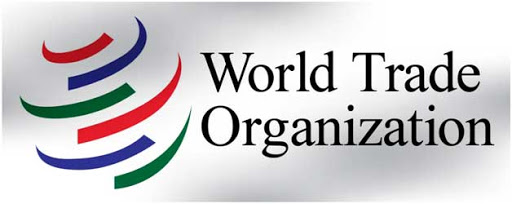Dr. Edwini Kessie – Head of Commodities and Agriculture at the World Trade Organization exhorted African Nations to make do with Policies that would increase Multinational Trade Successes for the Continent
By Abdul Rahman Bangura-

Photo Credit: Inter Press Service
NEW AFRICA BUSINESS NEWS (NABN) Freetown, Sierra Leone- In a lecture organized by the University of Professional Studies, Accra (UPSA) Law School and the Centre for International Education and Collaboration (CEIC) on the theme, “Leveraging trade to achieve sustainable development in Africa’s Food and Agriculture Sector”. Dr. Kessie asserted that, Africa faced huge challenges such as slow financial growth, rising conflict, insecurity and climate change.
“In 2023, some 462 million people in the region were still living in extreme poverty. And as of last June, some 21 countries in the region faced high debt distress risks.
“Across the continent, economic growth remains uneven,” he noted. Same, he remarked, Africa’s youthful population, although the future of the Landmass which presented great chances for the Landmass, had become a source of challenge due to high unemployment and inadequate
opportunities.
“Up to 12 million young people are expected to enter Africa’s labour market every year in the coming decades. But only about three million new formal wage jobs are currently created each year. “That represents a 75 per cent deficit. So this is both a challenge and an opportunity that our policy-makers will have to grapple with,” he said.
Dr. Kessie noted, one of the foot prints leaders and policy makers on the continent could tackle some of the challenges was by placing emphasis on trade, which he stressed had become the catalyst for economic growth, reducing poverty and creating jobs and opportunities for billions of people.
“In 1980, close to 40% of the world’s population lived on less than the equivalent of $1.90 a day. By 2019, it was less than 10%. Trade has helped lift a billion people out of extreme poverty, most of it occurring in China and India.
“This is in part because trade has helped galvanize investment, including sustainable technologies, which are increasingly critical as we transition towards a low-carbon economy,” he said.
Trade, had increased value the more to economies and made them more productive due to increased competition and specialization. He said Africa had been a beneficiary of trade but stressed that more needed to be done for the continent to derive more benefits from global trade.
“Africa has participated in these gains – but there’s still more that can be achieved. Despite its size, the continent today still only accounts for 3 per cent of global trade. “The two largest economies in Africa – Nigeria and South Africa – account for roughly 0.5 per cent each,” he added.
He advised that, to improve and increase trade to accelerate development, African policymakers ought to concentrate on trade policies within the broader framework of development. “Today, that also means situating trade policy within the next big challenge we all face: climate change.
“It’s done so by expanding consumer choice and by lowering prices for goods and services in Africa and around the globe,” he said. He lauded the African Continental Free Trade Area (AfCFTA) as a significant milestone which could unlock massive economic growth and development on the continent.
“It (AfCTA) will create a large, unified market of 1.4 billion people as well as a strong base for exporting Africa’s output to the world. “This can help improve value addition and enable firms to participate effectively in value chains,” he added.
For New Africa Business News (NABN) Abdul Rahman Bangura Reports, Africa Correspondent
